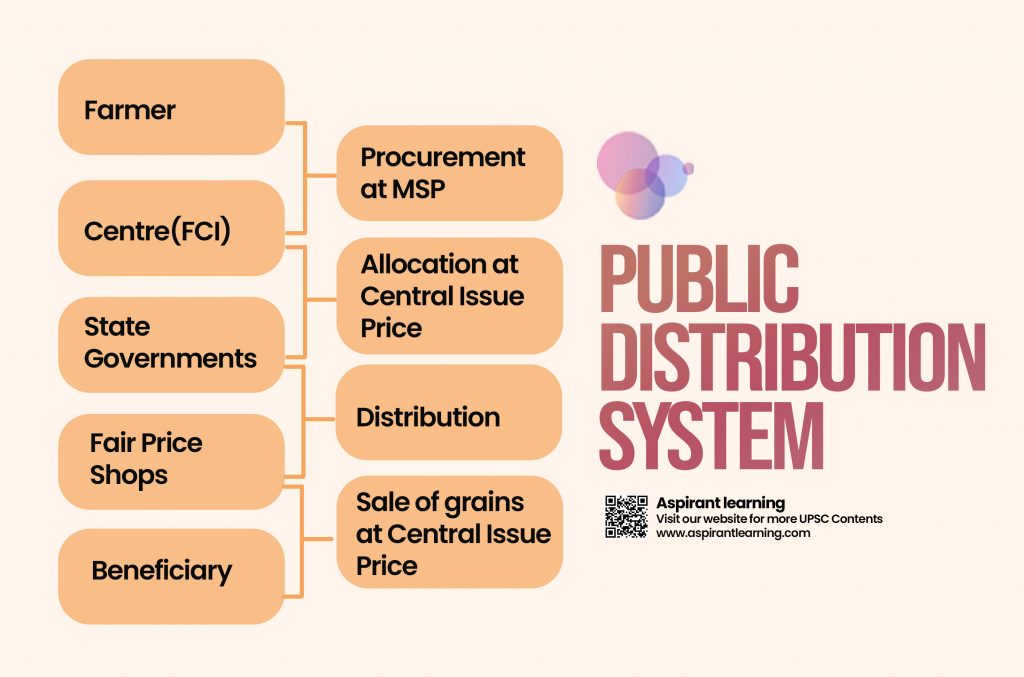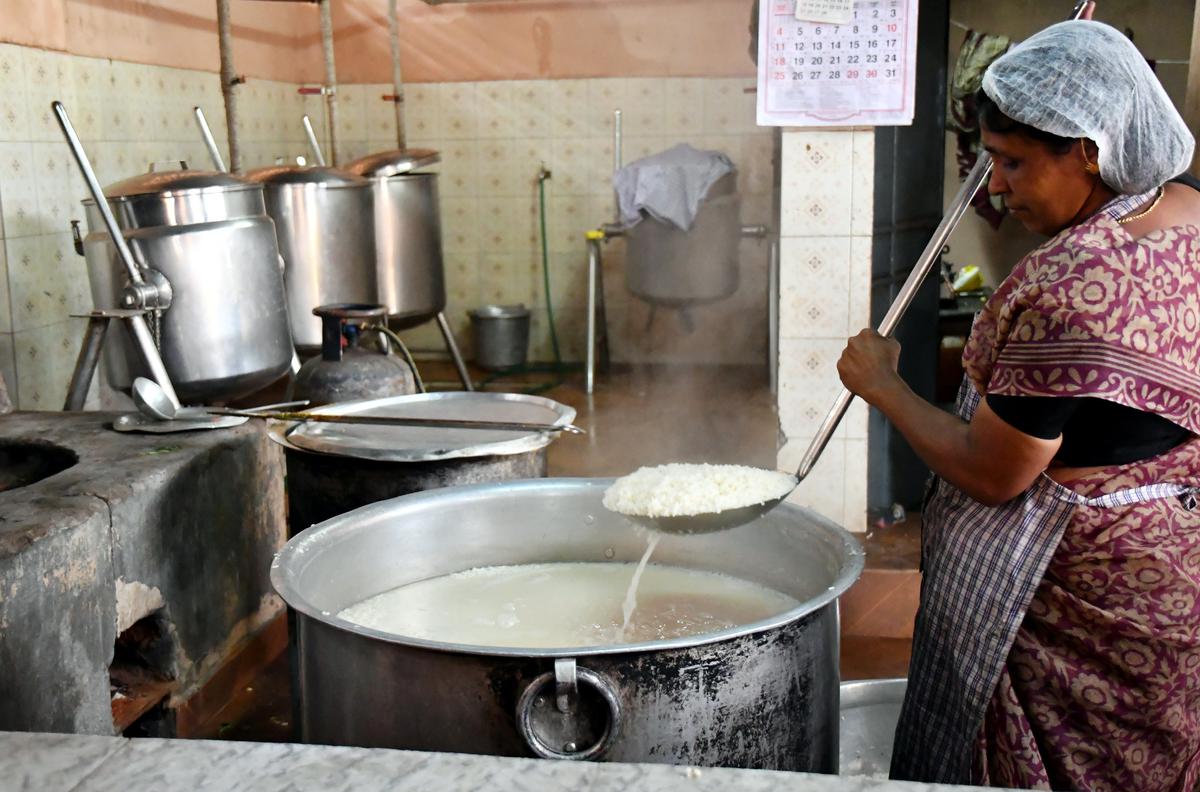News Highlight
Expanding PDS coverage to account for the increase in population since 2011 is a no-brainer: broaden Food safety without delay.
Key Takeaway
- The National Food Security Act (NFSA), 2013, through the Public Distribution System (PDS), provides a crucial safety net for roughly 800 million people.
Food Safety
- When all people have physical and economic access to sufficient, safe and nutritious food to meet their dietary needs and food preferences for an active and healthy life.
- Parliament passed the Food Security Act of 2013 to ensure food security for all Indian citizens.
- National Food Security Act (NFSA), 2013
- The goal is to ensure that people have access to an appropriate supply of wholesome food at affordable costs, allowing them to live dignified lives.
- Coverage and entitlement under Targeted Public Distribution System (TPDS)
- In case of non-supply of entitled food grains or meals, there is a provision for food security allowance to entitled beneficiaries.
- Provisions for the publication of PDS records have been implemented to ensure accountability and transparency.
Public Distribution System (PDS)
- About
- The Public Distribution System (PDS) is a food safety system in India overseen by the Ministry of Consumer Affairs, Food, and Public Distribution.
- PDS is operated under the central and state governments’ joint responsibility.
- PDS arose as a system of scarcity management through distributing food grains at low cost.
- Importance of PDS
- The minimum support price and procurement systems have increased food grain production.
- It has aided in grain redistribution by supplying food from surplus areas of the country to deficient areas.
- It contributes to the nation’s food and nutritional security.
- It has helped to stabilise food prices and make food more affordable to the poor.

Other Food Safety programs in India
- Midday Meal Scheme
- Launched in 1995, the Ministry of Education’s Midday Meal Program is a centrally funded initiative.
- Every student who enrols and attends the school, ages six to fourteen, is given a cooked lunch in classes I through VIII.
- Integrated Child Development Services scheme (ICDS)
- It is a centrally sponsored scheme implemented by the Ministry of Women and Child Development, launched in 1975.
- The Scheme’s beneficiaries include pregnant women, breastfeeding mothers, and children between the ages of 0 and 6.
- It offers six services: referral services, non-formal education, nutrition and health education, immunisations, and health checks.
- Mega Food Parks Scheme
- The Ministry of Food Processing Industries introduced the programme in 2008–2009.
- It intends to boost the food processing business by increasing value and minimising food loss at each stage of the supply chain.
- There are 22 Mega Food Parks open for business right now.
- It is consistent with the Indian government’s “Make in India” and “Atma Nirbhar Bharat” visions.
- SAMPADA Yojana
- Agro-Marine Processing and Development of Agro-Processing Clusters, or SAMPADA, was introduced by MoFPI in 2016.
- SAMPADA was changed to the Pradhan Mantri Kisan Sampada Yojana (PMKSY) in 2017.
- It is a Central Sector Scheme.
- Its aim is to supplement agriculture and create processing and preservation capacities.
Current trends, challenges and potential opportunities in the food system
- Progress on SDG has been uneven.
- Food safety continues to worry as various food conditions deteriorate.
- For many of the most marginalised and disadvantaged individuals globally, the food system continues to be a source of instability in their livelihoods.
- Biophysical, environmental, and disease trends
- Food systems are being significantly impacted by climate change.
- Food security is significantly impacted by threats to food safety, hazards in the food supply, pests, and emerging diseases, such as COVID-19.
- Technology, innovation and infrastructure trends
- Recent years have seen growing support for innovation for sustainable agricultural production methods.
- Some of them are agroecology, sustainable intensification, and climate-smart agriculture.
- Political and institutional trends
- Public sector investment in food and agriculture has decreased.
- Civil strife and conflict jeopardise the food security of millions of people worldwide.
Way Forward
- Urgently build more sustainable, resource-efficient and resilient food systems.
- Support a wide range of food production and distribution networks, including territorial market arrangements.
- Take responsible trade measures to maintain food price stability, especially in public health and emergencies.
- Ensuring Transparency in Food Stock Holdings
- Foodgrain banks can be established at the block/village level, from which people can obtain subsidised food grains in exchange for food coupons.
- Using an Umbrella Approach to Address Issues
- India can look forward to a sustainable green economy by viewing disparate issues through a standard lens, such as inequality, food diversity, indigenous rights, and environmental justice.
Pic Courtesy: The Hindu
Content Source: The Hindu



